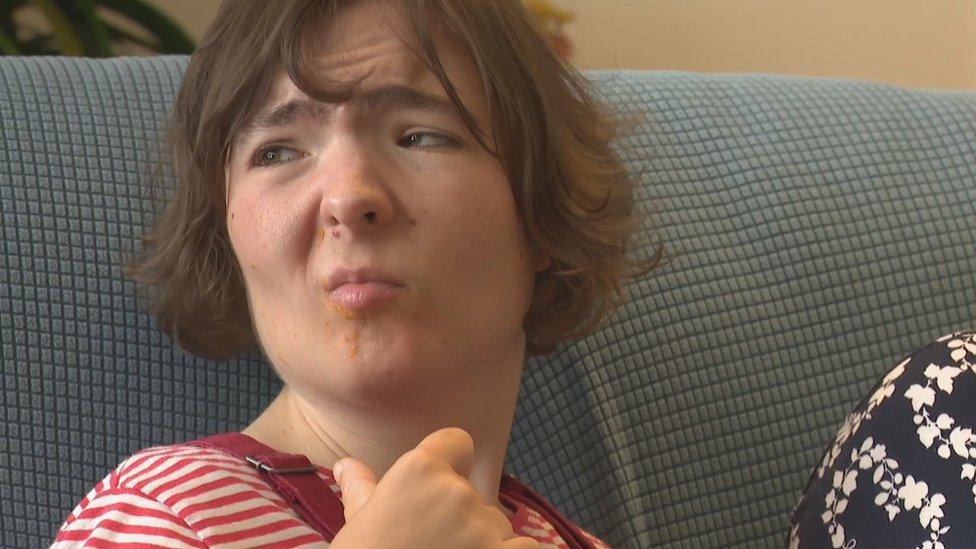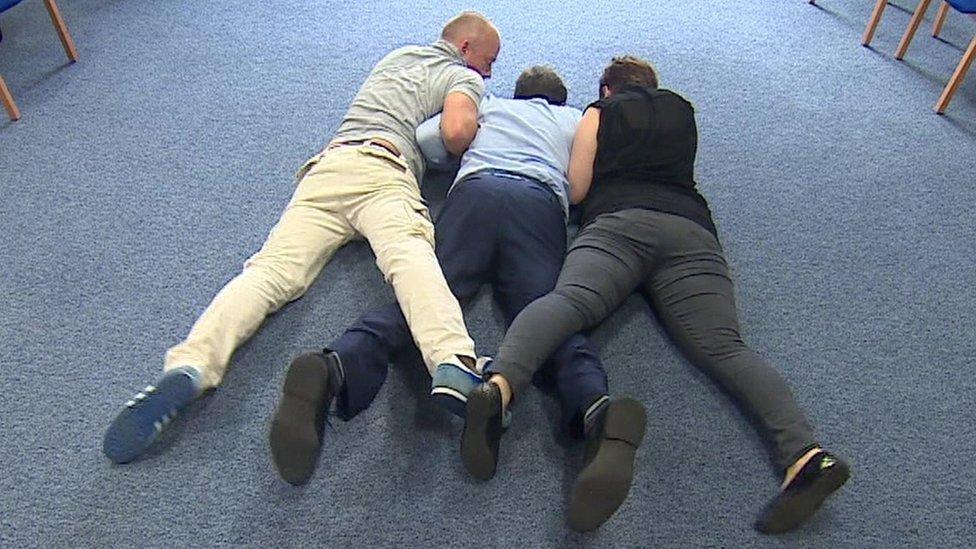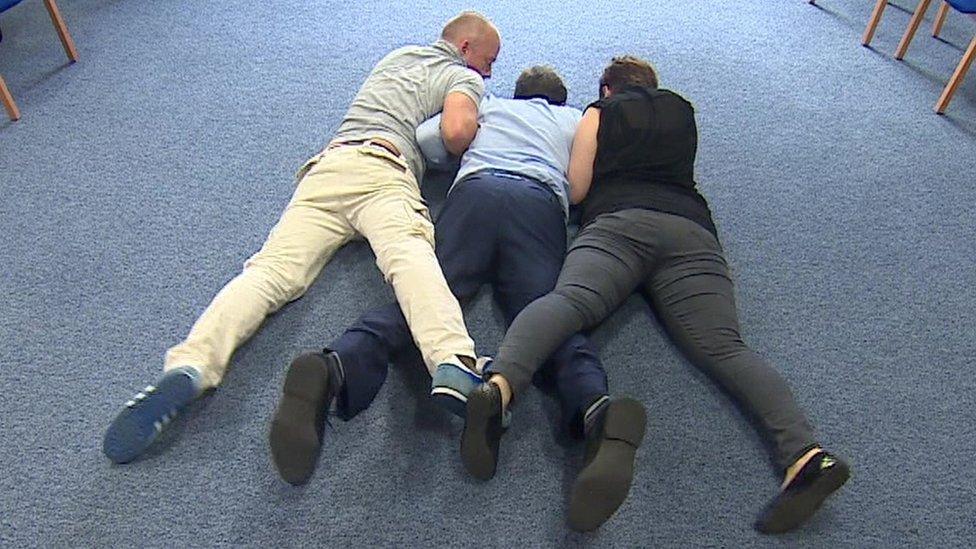Families call for school restraint rules to be enforced
- Published
Campaigner Kate Sanger (right) is angry about the draft guidelines
Families of children with additional support needs have called for new guidelines on the use of physical restraint in schools to be put in law.
The BBC has seen draft proposals that do not rule out the use of face-down "prone" restraint - although the final guidelines are expected to be stronger.
Children's Commissioner Bruce Adamson said the guidelines must rule out restraint and have the power of law.
The Scottish government previously said restraint should only be a last resort.
Restraint and seclusion, which involves locking someone in a room or safe space, have often been used in educational settings - particularly for children with disabilities and additional support needs.
New guidelines are due to be published on Tuesday as part of a public consultation.
It comes four years after a report by Scotland's Children's Commissioner revealed thousands of restraint incidents, affecting hundreds of children.
The draft proposals, which were shown to the BBC, initially said face-down restraint should be avoided, but did not rule it out.
However, an updated version sent out on Thursday night said prone restraint "should not be used".
A parents group advising on the guidelines said this change would make no difference unless the rules were legally binding.
'It beggars belief'
Kate Sanger, whose daughter Laura has a rare genetic disorder and severe learning disabilities, said: "They have only changed the wording because of the BBC coverage and recent questions in parliament.
"Teachers will still use physical restraint including face-down restraint.
"We've had guidelines before and they did nothing to protect children. They need to be legally enforceable and clear that prone should never ever be used."
A survey by the charity Positive and Active Behaviour Support Scotland (PABSS) found children as young as three had been put in seclusion or restrained in school in the past two years.
Parents reported more than 600 children had been secluded or restrained. More than nine in 10 of those children had injuries as a result.
Ms Sanger, who was on the Scottish government working group on physical intervention, said she was appalled that locking children in a room alone was still included.
"In this day and age it beggars belief," she said.
"If we continue to treat the most vulnerable in society like this it is going to take a serious injury or a death to bring about change and that should not happen."

'I didn't realise then the impact of seclusion and restraint'

Kate Sanger says the trauma of seclusion stayed with her daughter Laura
Kate Sanger's daughter Laura was repeatedly restrained and placed in seclusion when she was at secondary school.
Much is made in the draft guidelines about the use of seclusion - which involves locking someone in a room or safe space.
Laura's mother, from Perthshire, says the trauma stayed with her.
"She can't have a room where the door is shut because she is terrified," Kate says.
"I suppose her mind went back to being locked in these places. For years she had to have a bedroom with the door taken off.
"I didn't realise then the impact of seclusion and restraint. Laura got to the stage where the minute she saw her uniform, she would start screaming."
Laura is now 30. Her mother has campaigned for years to ensure Scotland has legally-enforceable guidelines and proper training for teachers.
Kate says teachers need the right training to understand that all behaviours have a function.
"Why would we pin a child with a learning disability to the floor when we would not do it to a non-disabled child? In this day and age it is shocking."

Human rights

Prone restraint can result in serious injury
The teaching unions were also part of the Scottish government working group.
EIS assistant secretary for education and equality, Andrea Bradley, said the focus should be on "prevention" and on making sure classrooms are appropriately resourced.
She said the EIS would "certainly not" advocate the use of prone restraint.
The UK government produced guidelines in 2014 which said prone restraint should not even be used on adults.
The Scottish government earlier said it could not comment on the details of the guidelines, before amendments were made to the draft.
A spokeswoman said: "Physical intervention, physical restraint and seclusion should only ever be used appropriately, as a last resort and when in the best interests of the child or young person.
"We are working with partners, including the Children and Young People's Commissioner, on new human rights-based guidance to minimise the use of physical intervention and seclusion in schools.
"We are preparing to consult on the draft guidance and are keen to hear a wide range of views."
Related topics
- Published2 October 2018

- Published10 November 2020
